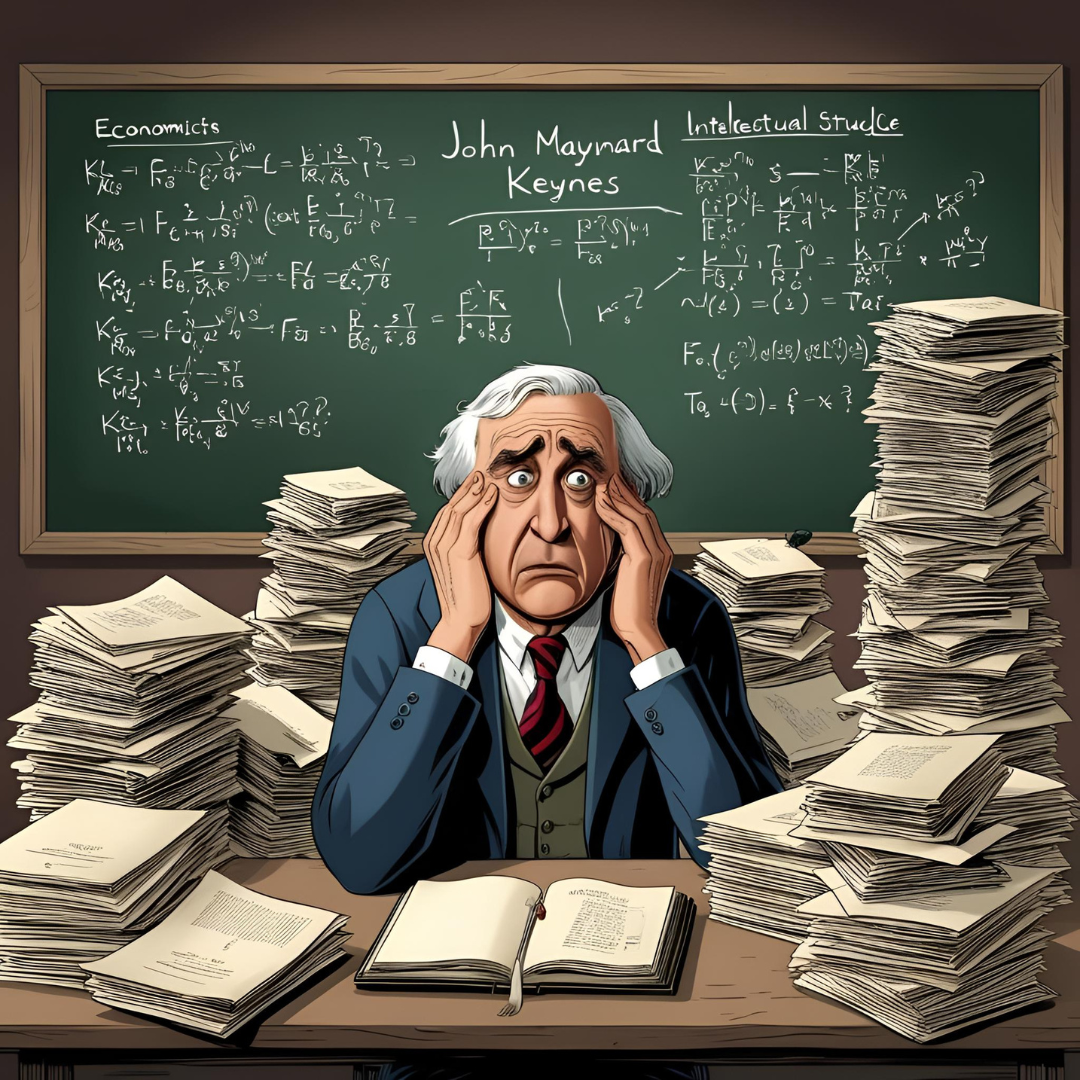Recently an keynsian style economic conference left me with some lingering questions about the discipline’s ability to grapple with the messy realities of politics, power, and human behavior.
The opening lecturer argued that politicians, when deciding between war and peace, would calculate the economic consequences of their actions. If the economic effects were negative, war would be avoided. According to this logic, economics has effectively rendered war irrational—and therefore no longer a threat. Bravo!
When I raised the question of whether politicians might prioritize other variables—such as military strength, geopolitical interests, domestic political tensions, or historical grievances—my concerns were dismissed. The economist was confident in the explanatory power of his model…
This exchange highlighted a recurring theme in economics: the tendency to reduce complex human decisions to so-called “rationality”, which tends to be meassured in currency?! (Here darling, take this 100 Dollar bill for your birthday, surely you would not get more value out if it, if I thought of something, went into town and got it for you , I mean, let’s not be “irrational” here…) This overlooks the broader context in which decisions are made. Politics, after all, is not just about maximizing some sort of economic utility; it is also about power, ideology, voter’s interest, compromise, past promises and so on. To assume that politicians act solely as “rational” economic agents is to ignore the lessons of political science, history, and even common sense.
Poor economic models
The economist (and profesor of economics) also suggested that only countries far removed from the theater of war benefit economically from conflict. But here’s the catch: the only reason the model produces this result is that the U.S. happens to be situated across the ocean. This feels less like a profound economic insight and more like a look at the word-map. The model, in its simplicity, fails to account for the complex web of geopolitical strategy, military alliances, and historical relationships that drive conflicts. It’s a classic case of letting the model dictate the narrative rather than the other way around.
The conference’s subsequent presentations offered more substantive insights for example, demonstrating how rigid budget rules in EU member states exacerbate pro-cyclical investment patterns, with the UK standing as a notable exception. This was a classic Keynesian critique, highlighting the dangers of austerity during economic downturns. Yet even here, the political dimension was largely absent in the following discussion. Who enforces these rules in a bloc where compliance is patchy at best? If the so-called “frugal four” were to abandon their frugality, and if the German parliament decided to invest €1 trillion in infrastructure, defense, and climate protection, as it did today, who would insist on sticking to the rules? The truth is, there have never been any meaningful enforcement mecanisms on the matter. They exist on paper, but paper does not enforce itself.
Departments – join forces!
The conference left me with a clear takeaway: Economics needs more interdisciplinarity. Perhaps every economics student should be required to collaborate on a research project with someone from another discipline—political science to start with. By broadening its horizons, economics can better address the complexities of the real world, where decisions are rarely made, based on financial book-keeping.
War, peace, and politics are not just economics—and to deal with real-world issues, we will need better, than just “Rationality measured in money”, a concept ironically criticized for decades as a hallmark of neoliberal thinking.





